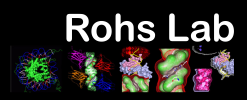Quantitative Binding Data
Top-Down Crawl is able to rapidly align quantitative binding data from experiments such as SELEX-seq and SMiLE-seq. Methods like these are able to provide highly reprodible k-mer level measurements of binding affinity, but understanding where an enriched k-mer falls along the bidning site depends on alignment. k-mer level data is more informative than simplistic PWM-based models which assume independent contributions between positions of the binding site.
Please upload a table containing the sequences in the first column and their associated binding metrics in the second. An example input file is provided below. Values for reverse complements will be averaged if provided, or assumed to be equivalent if not. The current version of TDC only accepts sequences containing standard nucleotides (A,C,G,T).
Sample Input
Input Guidelines
Please upload a table containing the sequences in the first column and their associated binding metrics in the second. An example input file is provided below. Values for reverse complements will be averaged if provided, or assumed to be equivalent if not. The current version of TDC only accepts sequences containing standard nucleotides (A,C,G,T).
Sample Input
Input Guidelines

showing how the algorithm would align several similar
k-mers based on a given reference.
If you use Top-Down Crawl, please cite the following paper:
Brendon H. Cooper, Tsu-Pei Chiu, and Remo Rohs. "Top-Down Crawl: A method for the ultra-rapid and motif-free alignment of sequences with associated binding metrics." Bioinformatics 38.22 (2022): 5121-5123.
Brendon H. Cooper, Tsu-Pei Chiu, and Remo Rohs. "Top-Down Crawl: A method for the ultra-rapid and motif-free alignment of sequences with associated binding metrics." Bioinformatics 38.22 (2022): 5121-5123.

